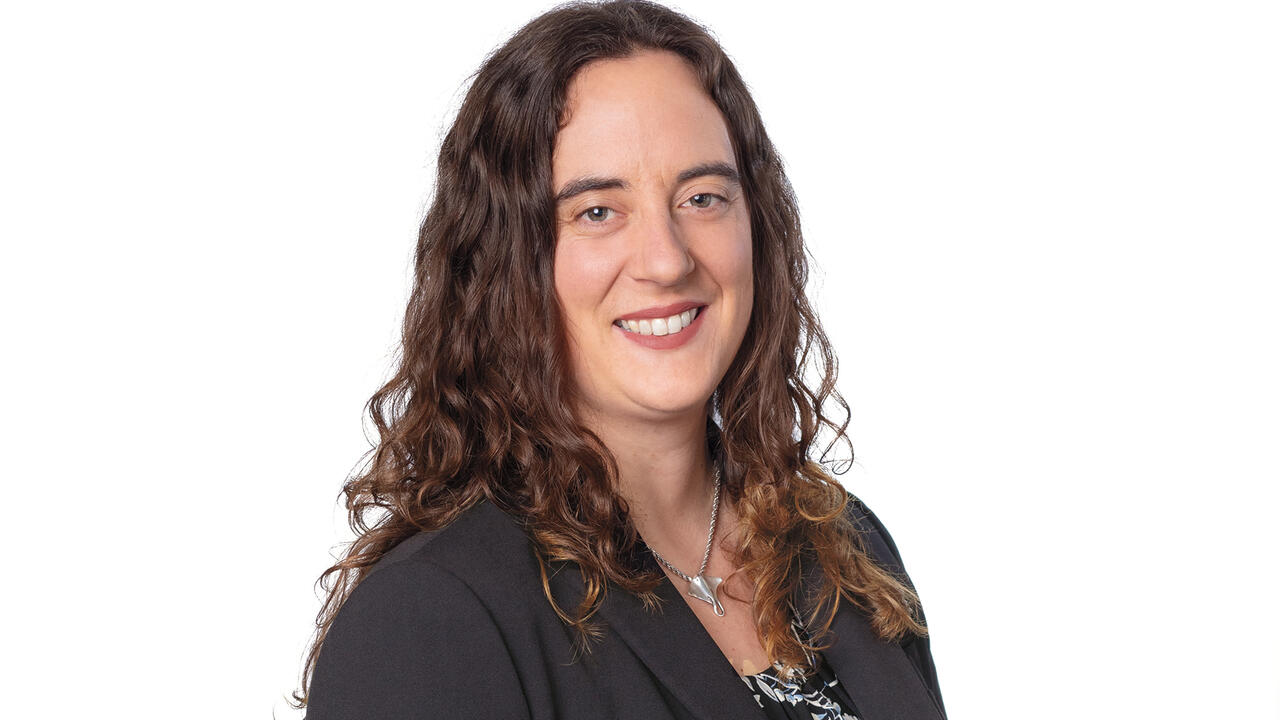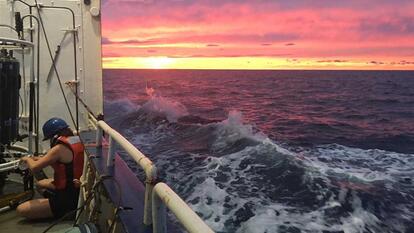
From the Coast to the Capitol
To say that Rebecca Selden has a passion for the ocean would be an understatement. For the past 15 years, she has devoted her career to marine science, traveling to oceans near and far (and doing some 700 research dives) to study marine ecosystems and particularly species harvested by coastal communities. Yet in May 2019, Selden’s passion for the ocean led her somewhere new—to Capitol Hill, where she traded her mask and fins for a microphone to testify before the House Subcommittee on Water, Oceans, and Wildlife about a central aspect of her research: how climate change is affecting fisheries.
“We’ve seen as species shift poleward to match the warming oceans, they are shifting away from ports where fishers have relied upon them for generations, and becoming newly available to others,” Selden explains. During her testimony, she discussed this trend and fielded questions about how it may affect fisheries in individual states—for example, the summer flounder fishery that is moving from the Carolinas north into the coastal New Jersey region. She also recommended that regions start coordinating fisheries management, since species are shifting across existing management lines.
“It was a fantastic experience. I really felt like I had the opportunity to put the science out there and share this view of how climate change is affecting fisheries now in a way that might actually inspire action,” Selden says. And it seems her testimony (and that of a few others) was well received. In October 2019, the committee proposed a Climate-Ready Fisheries Act.
Selden, an assistant professor of biological sciences, caught the marine biology bug early but didn’t become interested in fisheries until later when, as a Watson Fellow, she studied small coastal communities that rely on sea turtles. “My experience made me realize that you do need to think about the importance of these coastal resources for those communities, and people are part of this ecosystem, too,” Selden says. “We want to allow for sustainable harvest to continue for generations, so how do we do that the best way we can?”
“We want to allow for sustainable harvest to continue for generations, so how do we do that the best way we can?”
Rebecca Selden, assistant professor of biological sciences
As Selden continued grappling with this question during her Ph.D. at the University of California, Santa Barbara, she realized that there was a massive global stressor that could no longer be ignored: “It felt like climate change was the elephant in the room, and I was interested in how that might affect our ability to manage fisheries, and what additional challenges it might pose.”
To that end, Selden took to the ocean in places like the Gulf of Maine, where she discovered that warming temperatures have sent cod populations into decline, allowing other predators like spiny dogfish to expand. Her research established the importance of understanding the broader roles that species play in ecosystems when considering how these ecosystems may be affected by climate change—and how the fisheries they encompass should be managed. Selden also gained insights from interviewing fishers. For example, she learned that many would rather continue fishing in the same geographic area than follow shifting species. To investigate these issues on a larger scale, Selden tapped decades of fisheries and climate data to create sophisticated predictive models.
Selden arrived at Wellesley last fall. She is most excited about getting into the field with her students—and hopefully inspiring them to consider careers in marine science in the process. “We have access to our fantastic intertidal ecosystem here. The Gulf of Maine is warming more rapidly than much of the globe, and I’m planning for our lab to think about how warming interacts with other stressors like ocean acidification, harvest, and invasive species,” Selden says. This summer, she had hoped to take students to sites across New England to study species like blue mussels—which is a key fishery that has declined in recent years. Those plans are on hold for now.
But for Selden, her job doesn’t end with the research. “We know our systems really well, and I think it’s naive to just sit on our hands and hope that our academic papers find their way into the policymakers’ hands,” Selden says. “That’s why I’m really passionate about communicating our science in a way that informs the public and can be used for policy.” And if it requires an occasional trip from the coast to the Capitol, that’s fine by her.
This article appears in the spring 2020 issue of Wellesley magazine. Read the original version on the Wellesley magazine website.


